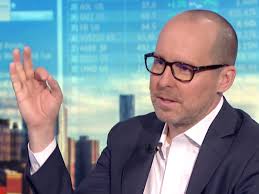Google Chrome's massive changes threaten the open web — but users have little sympathy

By the end of the year Google (GOOG, GOOGL) plans to profoundly reshape the digital advertising world. In a move designed to safeguard the privacy of web users, Google will end the use of third-party cookies on its Chrome browser, doing away with one of the commercial web's foundational technologies.
Last month, Yahoo Finance reported on what this shake-up could mean for websites that use third-party cookies to survive. It won't be pretty. Some experts described the coming transition as an extinction-level event for many businesses.
But based on reader feedback, many internet users have little sympathy for such publishers. One strain of responses to the story treated the remaking of the advertising world as long overdue and welcomed the overhaul. Some readers contend that advertising, in general, is ineffective, while others criticize the invasiveness and ham-fisted nature of targeted ads that seem to follow them everywhere through their daily digital lives.
"I guess I'm an outlier, but I have never once in my life watched an ad and said 'yeah... I want that,'" one reader said.
Another complained, "SO tired of visiting a site only to go somewhere else and be SLAMMED with ads from a company I chose not to do business with."
A coping mechanism that has now become second nature to internet users was summed up like this in a reader comment: "If the ad has an X, I click on it and it goes away."

Third-party cookies allow companies to track people across websites to target them with relevant advertising. Without them, businesses know less about their audiences, degrading their ability to make money through advertising.
The disruption of long-standing ad tech will challenge what has for decades sustained the internet experience: Users are shown ads and, in exchange, get access to free content. For websites that rely on advertising on the open internet, the death of the cookie risks destroying that model and their livelihood.
Story continues
But the push to end third-party cookies reflects shifting consumer sentiment about the need for greater privacy. That helps explain why, despite the risks to websites that consumers flock to, there isn't a broad public outcry to preserve cookies.
Public opinion data reflects broad anxiety over the use of data and distrust towards companies that collect information about people online.
About 4 in 10 Americans say they are very worried about companies selling their information to others without them knowing or people stealing their identity or personal information, according to a Pew Research Center report published in October 2023.
Nearly 70% of social media users say they have changed their settings to manage their online privacy, the data shows. And a similar share of US adults say they have declined or turned off cookies or other tracking on websites to protect their privacy.
Smaller but still-significant shares of people — 49% — say they have stopped using a device, website, or app because they were worried about how their personal information was being used. And 44% say they used a browser or search engine that doesn’t keep track of what they’re doing.
While concerns over surveillance technology have historically been tied to the realm of law enforcement, the same survey shows there is less apprehension about police monitoring web activity. The contrast suggests evolving attitudes about the threats posed by carrying out so many routines, habits, and activities online.
Ad industry experts acknowledge that bad actors have abused mainstream tracking technology. But they see the depreciation of cookies as an ill-conceived solution — one that punishes responsible businesses that rely on them instead of the unscrupulous data harvesters that have spoiled perceptions of ad targeting.
Anthony Katsur, chief executive of the IAB Tech Lab, a trade group for the digital ad industry, said a more private web experience is the right aspiration, but the current approach to getting rid of third-party cookies is deeply flawed. “It's like punishing the car for the accident that the drunk driver caused.”
Despite some vocal opposition to the digital ads business, the massive ecosystem and billions of dollars flowing through the industry indicate its value to many of the largest publicly traded companies and to the advertisers eager to grab people's attention.
From the industry's perspective, consumer data shows that targeted advertising is effective. Otherwise, brands wouldn’t pay to have their products placed in front of audiences.
Data from the the IAB Tech Lab suggests that consumers understand the exchange between the ad-supported model and accessing free services on the internet. A significant majority (80%) of consumers agree that websites and apps are free because of advertising, according to a report the group published in January. And 91% of consumers would react negatively if they had to start paying for the websites and apps they currently use for free. The study also found that almost 90% of consumers prefer targeted ads, and 87% are more likely to click on ads for products they’re interested in or shopping for.
Some internet users might be operating with unrealistic expectations, of course, wanting unlimited access to media without subscription costs or advertisements. Meanwhile, an array of news publishers and streaming companies are running their own experiments, trying to find the right balance of free content, ad tiers, paywalls, and ad-free experiences.
All this is playing out during a media industry upheaval. Cord cutting is accelerating while the profitability of streaming services is uncertain. And traffic to many websites has fallen as the tech giants reroute the public's attention within their walled gardens while AI threatens to remake how people access content on the internet.
Amid so much uncertainty, it looks like many publishers are out of luck.
Hamza Shaban is a reporter for Yahoo Finance covering markets and the economy. Follow Hamza on Twitter @hshaban.
Click here for the latest technology news that will impact the stock market.
Read the latest financial and business news from Yahoo Finance


 Australia
Australia Argentina
Argentina  Austria
Austria  Brazil
Brazil  Canada
Canada  Germany
Germany  Ireland
Ireland  Italy
Italy  Malaysia
Malaysia  Mexico
Mexico  New Zealand
New Zealand  Poland
Poland  South Africa
South Africa  United Kingdom
United Kingdom  United States
United States 





















